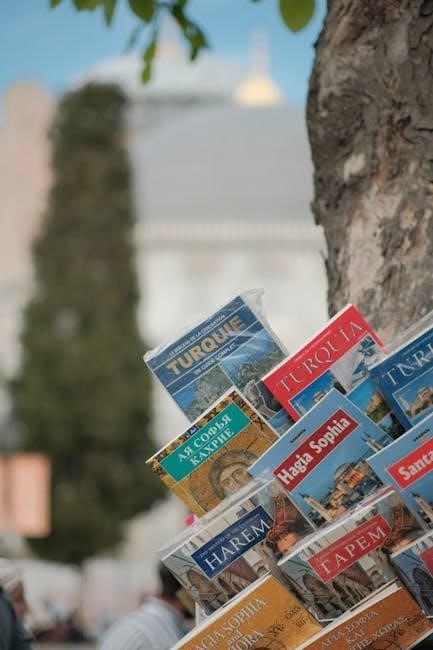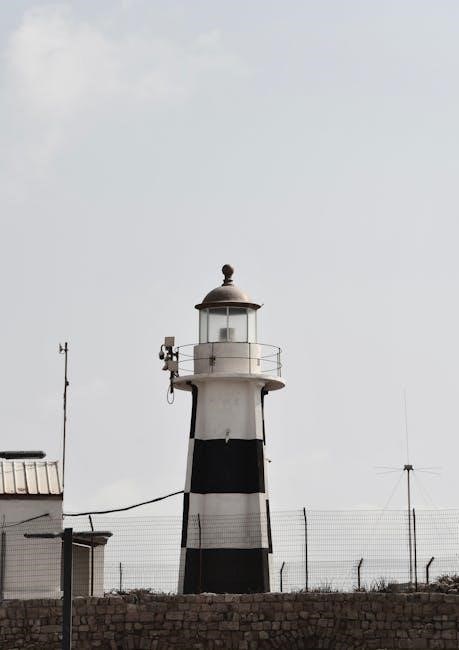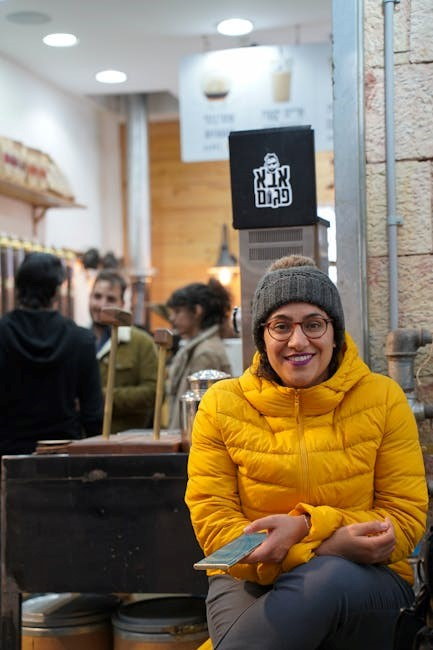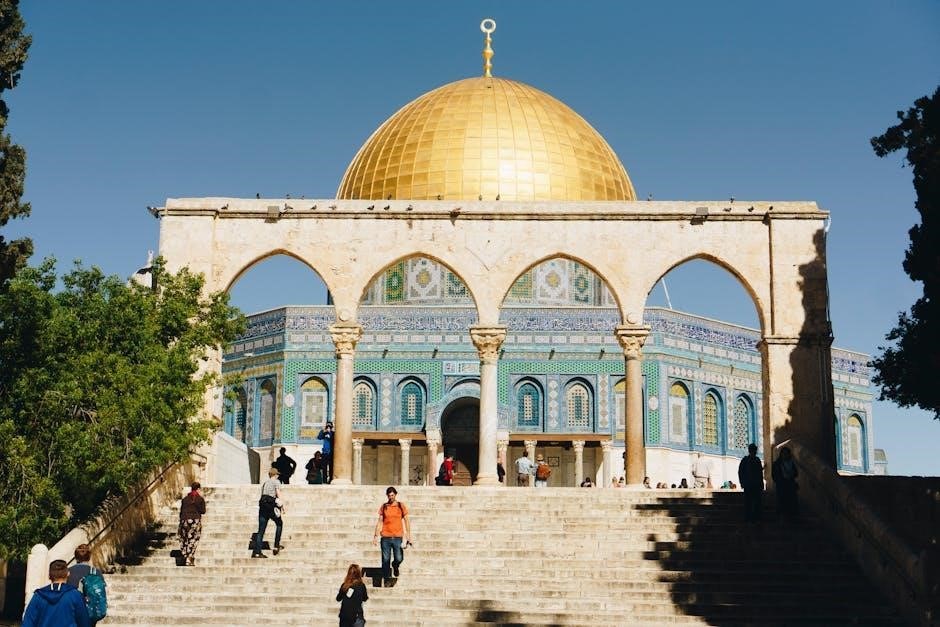
israel travel guide book
Israel, a vibrant nation at the crossroads of history and modernity, offers a rich tapestry of ancient sites, diverse cultures, and stunning landscapes. Nestled between the Mediterranean Sea and the Red Sea, it captivates visitors with its spiritual significance, friendly locals, and mouthwatering cuisine.
1.1 Overview of Israel
Israel, a small yet vibrant country in the Middle East, is a crossroads of history, culture, and religion. Known for its rich biblical heritage, it boasts ancient sites like Jerusalem’s Old City and the Western Wall. The country’s diverse landscapes range from the Negev Desert to the Mediterranean coastline. Israel’s population is a mosaic of cultures, with Jews, Muslims, Christians, and others coexisting. Its modern cities, such as Tel Aviv, blend innovation and tradition, while rural areas offer serene natural beauty. From bustling markets to cutting-edge tech hubs, Israel is a destination that seamlessly merges the past with the present. Its unique blend of history, spirituality, and modernity makes it a fascinating place to explore.
1.2 Geography and Climate
Israel, though small, boasts a diverse geography and climate. It stretches from the snow-capped Golan Heights in the north to the arid Negev Desert in the south. The Jordan Rift Valley runs along its eastern edge, featuring the Dead Sea, the lowest point on Earth. The Mediterranean coastline to the west offers sandy beaches and mild winters, while the central highlands provide fertile land and cooler temperatures. Israel’s climate is mostly Mediterranean, with hot, dry summers and mild, rainy winters. However, regional variations exist, with the desert regions experiencing extreme heat and limited rainfall. This geographical diversity creates a unique landscape that supports a wide range of flora and fauna, making Israel a fascinating destination for nature enthusiasts and travelers alike.

Planning Your Trip
Planning your trip to Israel requires thorough research and organization. Create a detailed itinerary, understand the regions, and prepare for a diverse cultural and geographical experience.
2.1 Best Time to Visit
Israel’s climate varies by region, but spring (March to May) and autumn (September to November) are ideal for visiting. Mild temperatures and vibrant landscapes make these seasons perfect for touring. Summer can be hot, especially in coastal areas like Tel Aviv, while winters are cool, with occasional rain. If you’re interested in specific events, plan around religious holidays or cultural festivals. For beach activities, Eilat is warm year-round, but the Dead Sea is best in spring and autumn. Consider the weather and crowd levels when choosing your travel dates for an optimal Israeli experience.
2.2 Essential Travel Documents
Before traveling to Israel, ensure you have all necessary documents. A valid passport is required, with at least six months’ validity from your entry date. Citizens of certain countries may need a visa, so check Israel’s visa requirements based on your nationality. Travel insurance is highly recommended to cover medical emergencies, trip cancellations, and lost luggage. Bring a printed or digital copy of your flight itinerary, hotel reservation, and any pre-booked tours. If you’re renting a car, an international driving permit is useful. Additionally, consider carrying a photocopy of your passport and important phone numbers. For health precautions, verify if any vaccinations or COVID-19 documentation is required. Organize your documents securely to avoid delays during your trip.
2.3 Getting to Israel
Israel is easily accessible by air, land, and sea. The primary international gateway is Ben Gurion Airport (TLV) near Tel Aviv, served by major airlines like El Al, British Airways, and Lufthansa. Flights connect Israel to Europe, North America, Asia, and Africa. For those arriving by sea, cruise ships dock at Haifa and Ashdod ports. Land crossings are possible via Jordan (Allenby Bridge) or Egypt (Taba Border). Domestic transportation includes trains, buses, and car rentals. Pre-booking flights and accommodations is advisable, especially during peak travel seasons. Ensure all travel documents are up-to-date before your journey. This convenient accessibility makes Israel a popular destination for global travelers seeking history, culture, and adventure.
2.4 Accommodation Options
Israel offers a wide range of accommodation options to suit every budget and preference. From luxurious 5-star hotels in Tel Aviv to charming boutique hotels in Jerusalem, visitors can choose from modern amenities or historic settings. Budget travelers will find hostels, guesthouses, and zimmers (rural bed-and-breakfasts) ideal for affordable stays. For a unique experience, kibbutz guesthouses and eco-lodges provide a taste of rural Israeli life. Additionally, resorts along the Dead Sea and Eilat cater to those seeking relaxation and spa experiences. Booking in advance is recommended, especially during peak travel seasons like summer and major Jewish holidays. Popular platforms like Booking.com and Airbnb offer convenient ways to explore and reserve accommodations across Israel.
2.5 Budgeting for Your Trip
Budgeting for a trip to Israel requires careful planning to ensure a memorable experience without overspending. Accommodation costs vary widely, with hostels starting at around $30 per night and luxury hotels costing upwards of $200. Meals can range from $10 for street food to $30 or more at mid-range restaurants. Transportation, including public buses and trains, is affordable, with single rides costing about $2 and daily passes around $7. Activities like museum visits or guided tours typically cost between $10 and $30 per person. Budget travelers can expect to spend around $70-100 per day, while mid-range travelers might spend $150-250. Luxury travelers can easily exceed $300 daily. Planning ahead and booking accommodations and tours in advance can help save money and ensure availability.

Must-Visit Destinations
Israel captivates travelers with its ancient cities, breathtaking landscapes, and vibrant culture. Explore Jerusalem’s holy sites, Tel Aviv’s modern charm, Haifa’s stunning views, and the serene Dead Sea.
3.1 Jerusalem: The Holy City
Jerusalem, a city sacred to Judaism, Christianity, and Islam, is a spiritual and historical treasure trove. The Old City, a UNESCO World Heritage Site, is home to iconic landmarks like the Western Wall, Dome of the Rock, and Church of the Holy Sepulchre. Pilgrims and travelers alike are drawn to its ancient streets, where the air is thick with history and faith. Explore the vibrant markets, where the scent of spices and fresh bread fills the air, and discover the city’s diverse cultural quarters. Beyond its religious significance, Jerusalem offers a glimpse into its rich past at museums like the Israel Museum, showcasing artifacts that tell the story of civilization. Whether you’re seeking spiritual connection or historical insight, Jerusalem promises an unforgettable experience.

3.2 Tel Aviv: The Modern Metropolis
Tel Aviv, often called the “White City,” is a bustling hub of modernity and innovation. Known for its stunning Bauhaus architecture, vibrant beaches, and thriving cultural scene, Tel Aviv captivates visitors with its cosmopolitan charm. Stroll along the Mediterranean coastline, where popular beaches like Gordon Beach and Frishman Beach offer relaxation and scenic views. The city’s culinary scene is renowned, with trendy restaurants, cafes, and bustling markets like Carmel Market showcasing fresh produce and local flavors. Tel Aviv is also a hotspot for nightlife, with rooftop bars, clubs, and live music venues drawing both locals and travelers. As Israel’s tech capital, it’s a city of contrasts, blending historical significance with cutting-edge innovation, making it a must-visit destination for any traveler.
3.3 Haifa: The Northern Gem
Haifa, nestled on Israel’s northern Mediterranean coast, is a city of breathtaking beauty and rich history. Situated on the slopes of Mount Carmel, it offers panoramic views of the sea and surrounding landscape. The city’s crown jewel is the Baha’i Gardens, a UNESCO World Heritage Site, featuring meticulously manicured terraces and stunning vistas. Haifa also boasts a vibrant cultural scene, with museums, art galleries, and historic sites like the German Colony, a charming 19th-century neighborhood. The city’s port is a bustling hub of activity, reflecting its significance as a trade and cultural crossroads. Haifa’s diverse population creates a unique blend of traditions, making it a fascinating destination for exploration and inspiration.
3.4 The Dead Sea and Surroundings
The Dead Sea, the lowest point on Earth, is a natural wonder located between Israel, Jordan, and Palestine. Renowned for its hyper-saline waters, it offers a unique floating experience. The surrounding landscape is equally captivating, with dramatic cliffs, salt formations, and mineral-rich mud. Nearby attractions include Masada, a historic fortress atop a plateau, and Ein Gedi, a lush oasis with ancient ruins and natural springs. Visitors can relax at beaches like Ein Bokek, enjoy therapeutic treatments, or explore the Dead Sea Scrolls at Qumran. The area’s serene beauty and historical significance make it a must-visit for travelers seeking both relaxation and cultural enrichment.
3.5 Eilat: The Southern Resort City
Eilat, Israel’s southernmost city, is a vibrant resort destination nestled between the Red Sea and the Negev Desert. Known for its stunning beaches, crystal-clear waters, and coral reefs, Eilat attracts travelers seeking relaxation and adventure. Popular activities include snorkeling, diving, and boat cruises to explore the underwater world of the Red Sea. The city also boasts a lively nightlife, with numerous bars, restaurants, and shopping centers. Nearby attractions like the Eilat Mountains, Coral Beach Nature Reserve, and Timna Park offer opportunities for hiking and exploring ancient history. Eilat’s unique blend of natural beauty, recreational options, and modern amenities makes it a perfect getaway for families, couples, and solo travelers alike.

Cultural Experiences
Israel offers a rich cultural tapestry, blending ancient traditions, vibrant festivals, and diverse cuisine. Explore religious sites, savor Middle Eastern flavors, and immerse yourself in local markets and lively nightlife.
4.1 Religious and Historical Sites
Israel is a treasure trove of sacred and historical sites, drawing millions of pilgrims and history enthusiasts yearly. The Western Wall in Jerusalem, a remnant of the Second Temple, holds profound significance for Jews worldwide. Nearby, the Church of the Holy Sepulchre marks the crucifixion and resurrection of Jesus, a cornerstone of Christianity. The Dome of the Rock, an Islamic shrine, gleams atop the Temple Mount, symbolizing its importance in Islam. Beyond Jerusalem, sites like Masada, a fortress recounting Jewish resistance, and Caesarea, with its Roman ruins, offer glimpses into Israel’s ancient past. These sites weave a narrative of faith, conflict, and cultural heritage, making Israel a unique destination for spiritual and historical exploration.
4.2 Israeli Cuisine and Dining
Israeli cuisine is a flavorful blend of Mediterranean, Middle Eastern, and global influences, reflecting the country’s diverse cultural heritage. Staples like hummus, tabouleh, and shawarma are must-tries, often served with warm pita bread. The iconic falafel, crispy chickpea patties, is a favorite street food. Israeli salads, such as the Israeli salad with diced tomatoes and cucumbers, highlight fresh, seasonal ingredients. Desserts like knafeh, a sweet cheese pastry, and halva offer a delightful finish. Dining in Israel is a social experience, with bustling markets like Carmel Market in Tel Aviv and cozy restaurants serving up hearty meals. The country’s wineries and craft breweries also add to its vibrant food scene, making every meal a memorable journey through taste and tradition.
4.3 Festivals and Celebrations
Israel’s vibrant festivals and celebrations reflect its rich cultural and religious heritage. Major Jewish holidays like Rosh Hashanah (New Year) and Yom Kippur (Day of Atonement) are observed with prayer and reflection. Passover (Pesach) commemorates the Exodus, while Sukkot features joyful gatherings in decorative booths. The country also celebrates Independence Day with patriotic parades and fireworks. Cultural events like the Jerusalem Film Festival and Tel Aviv Pride showcase Israel’s diverse and vibrant arts scene. Religious and cultural festivals often overlap, creating a lively atmosphere. These events offer visitors a chance to experience Israel’s unique blend of tradition and modernity, making any trip unforgettable and deeply immersive in local culture.
4.4 Local Markets and Shopping
Israel’s bustling markets and shopping scenes offer a vibrant mix of tradition and modernity. The Carmel Market in Tel Aviv and the Souk in Jerusalem’s Old City are must-visits, filled with fresh produce, spices, and handicrafts. Shoppers can haggle over prices for everything from colorful textiles to intricate jewelry. For unique souvenirs, look for handmade pottery, olive wood carvings, and Israeli-made jewelry. Modern shopping malls like the Malha Mall in Jerusalem and Azrieli Center in Tel Aviv provide a contrast with their sleek designs and international brands. Whether exploring ancient bazaars or contemporary boutiques, Israel’s shopping experiences are as diverse as its culture, offering something for every taste and budget.
4.5 Nightlife in Israel
Israel’s nightlife is as vibrant as its culture, offering a dynamic mix of entertainment for all preferences. Tel Aviv, known as the “city that never sleeps,” boasts a thriving scene with trendy bars, rooftop lounges, and world-class clubs. Jerusalem, while more subdued, features cozy wine bars and live music venues. Haifa’s nightlife includes laid-back pubs and seaside restaurants, while Eilat caters to party-goers with its resort-style bars and clubs. From dancing the night away in Tel Aviv to enjoying a quiet drink in a Jerusalem wine bar, Israel’s nightlife is a testament to its diversity and energy. Whether you’re looking for a lively party or a relaxed evening out, Israel’s after-dark experiences are unforgettable and cater to every taste.

Practical Information
Discover essential tips for a seamless journey, from planning and safety to local customs and staying informed, ensuring a memorable and hassle-free experience in Israel.
5.1 Transportation in Israel
Israel offers a well-developed transportation network, making it easy to explore the country. Buses are the most common mode, with Egged and Dan operating extensive routes. Trains connect major cities like Tel Aviv, Jerusalem, and Haifa, with a high-speed line to Ben Gurion Airport. Sheruts (shared taxis) provide a convenient and affordable option for both intra-city and inter-city travel. Renting a car is ideal for flexibility, especially for visiting remote areas, with modern highways facilitating smooth journeys. Walking and biking are also popular in cities like Tel Aviv, where bike-sharing programs are available. Taxis are widely accessible but ensure the meter is used. Domestic flights between Eilat, Tel Aviv, and Haifa are quick but can be costly. Public transportation typically does not operate on Shabbat (Friday evening to Saturday evening), so plan accordingly.
5.2 Safety Tips for Travelers
Israel is generally a safe destination, but it’s wise to take precautions to ensure a smooth journey. Stay informed about local conditions, especially in areas near borders. Petty theft can occur in crowded spots like markets and bus stations, so secure personal belongings. Use reputable taxi services and always check the meter. Avoid discussing sensitive political topics in public. Follow local dress codes when visiting religious sites. Carry a valid passport and travel insurance documents. Emergency services can be reached at 100 for police, 101 for medical aid, and 102 for fire. Stay hydrated in Israel’s hot climate and plan for Shabbat, when public transport and services pause. Be cautious of scams targeting tourists, such as fake tour guides, and verify credentials before booking. Trust local advice and stay vigilant in crowded areas for a secure and enjoyable trip.
5.3 Language and Communication
Hebrew and Arabic are Israel’s official languages, but English is widely spoken, especially in tourist areas, making communication relatively easy for visitors. Many Israelis are fluent in English, particularly in cities like Jerusalem and Tel Aviv. Signage, menus, and public transportation announcements are often in English, further facilitating navigation. While Hebrew phrases like “shalom” (hello) and “toda” (thank you) are appreciated, English is sufficient for most interactions. For travelers venturing to non-touristy areas, basic Hebrew phrases can enhance the experience. Downloading a translation app or carrying a phrasebook can also be helpful. Respectful communication, especially in religious or traditional settings, is key to a positive cultural exchange. Israelis are known for their hospitality, and clear communication fosters meaningful connections during your journey.
5.4 Tipping Etiquette
Tipping in Israel is customary and expected in various services. In restaurants and bars, a tip of 10-15% is standard, though some establishments include a service charge in the bill. For exceptional service, rounding up the total or leaving an additional 5-10% is appreciated. When paying in cash, tipping in shekels is preferred, as foreign currency may not be accepted. For tour guides and drivers, tipping is customary, with amounts varying based on the service quality and duration. Tipping is not mandatory but is widely expected as a sign of appreciation for good service. Always check if a service charge is already included before leaving an additional tip.
5.5 Shopping for Souvenirs
Shopping for souvenirs in Israel is a delightful experience, offering a wide range of unique and meaningful items. Popular choices include Dead Sea skincare products, handmade ceramics, and intricately crafted jewelry. Religious artifacts, such as menorahs and mezuzahs, are also sought after by visitors. Local markets, or shuks, are treasure troves for authentic goods, from colorful textiles to aromatic spices. Bargaining is expected in these vibrant bazaars, adding to the fun. Additionally, Israeli wine, olive oil, and dates make excellent souvenirs, showcasing the country’s agricultural richness. When shopping, consider supporting local artisans and small businesses to contribute to the community. Remember to check customs regulations before purchasing items like antiquities or large quantities of liquids. With so much to choose from, you’ll find the perfect memento to remember your trip.
Israel, a land of profound history and vibrant culture, offers unforgettable experiences. From ancient sites to modern cities, it leaves travelers with lasting memories and a deeper connection.
6.1 Final Tips for an Unforgettable Journey
Embarking on a journey to Israel is a life-enriching experience. To make it unforgettable, immerse yourself in the local culture, respect customs, and engage with the friendly locals. Indulge in the diverse cuisine, from hummus to falafel, and explore the vibrant markets. Stay flexible with your itinerary, as spontaneous adventures often lead to memorable moments. Capture the breathtaking landscapes and historical sites through photos and journals. Lastly, take time to reflect on the profound history and spirituality that surrounds you. With an open heart and mind, Israel will leave you with cherished memories and a deeper connection to its land and people.